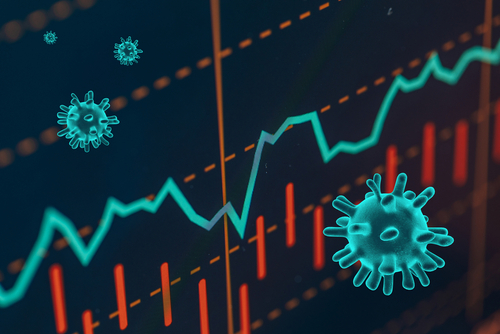Confronting new challenges
The IsDB has launched a series of measures and aid packages aimed at helping countries recover swiftly and strategically from the COVID-19 pandemic – and become more resilient ahead of the next big crisis
COVID-19 is a global crisis that forces us to confront new challenges. The pandemic affects human health as well as economies worldwide. The transcontinental nature of pandemics demands common solutions from all countries of the world. One consequence will be the hindrance of many countries’ efforts to achieve the Sustainable Development Goals. The pandemic will have unprecedented adverse effects on the overall development of members of the Islamic Development Bank Group.
In response, the IsDB Group has launched a $2.3 billion aid package for its members and Muslim communities in non-member countries. Direct support for the health sector represents 68% of the total funding and is coordinated with global partners, including international financial institutions such as the World Bank and the African Development Bank, the International Federation of Red Cross and Red Crescent Societies, and United Nations agencies including the World Health Organization, UNICEF, the UN Development Programme and the World Food Programme.
This package, called ‘The 3 Rs’ for ‘respond, restore and restart’, also calls for joint action to support our members, wherever they are in their stage of recovery, to deliver economies that are resilient, sustainable and inclusive. These factors could provide a roadmap for others looking to navigate the economy now and in the long term.
• Respond:
Prioritising urgent, immediate needs is essential in a crisis such as that wrought by COVID-19. If countries’ health systems become overwhelmed, then greater travel and movement restrictions will adversely, and disproportionately, affect micro, small and medium-sized enterprises.
In the Middle East, our Response track has already strengthened health systems by helping to procure urgent medical and non-medical supplies for infection prevention and control, including personal protective equipment for healthcare workers, as well as medical equipment such as testing kits, laboratories’ reagent, thermal camera disinfectants and vehicles needed to enhance the capacity of the targeted regions to respond to COVID-19. It has also worked with the G20’s global initiative on expanding pandemic preparedness capacity, which prioritises building resilient health systems and supporting research that is needs driven and evidence based, and adheres to the principles of affordability, equity and accessibility.
• Restore:
MSMEs have taken a huge financial loss already, so it is crucial that they can continue to trade and sustain their activities. Additionally, we need to ensure that enterprises do not surrender to harsh market forces and consequently adversely affect other enterprises higher or lower in their supply chains.
In the past months, IsDB has provided financing for trade and MSMEs to sustain their activities in core strategic value chains. These efforts help keep businesses running while ensuring continuity regarding the necessary supplies in health and food sectors and other essential commodities.
• Restart:
The pandemic has provided the opportunity to replace the old systems with something new, something better, through innovation. Fragile economies can be rebuilt on more sustainable principles. We can proactively invest in creating and strengthening institutions that prevent crisis.
We can coordinate scientific and technological responses as well as research and development activities, steering them towards the public good. That means using funding to restart a new economy, leveraging science and technology to prevent disruptions in global value chains during such pandemics, while maintaining zero environmental footprint. We can forge public-private-philanthropic-people-partnerships to ensure both citizens and economies benefit.
In terms of the IsDB’s efforts, a targeted $10 billion aims to unlock $1 trillion worth of investments to help catalyse private investment and support both economic recovery and countercyclical spending.
A swift economic restart
Countries must act swiftly and strategically to restart and restructure their economies. Not doing so could widen existing gaps in wealth, technology and productivity across borders.
The IsDB has set clear goals to catalyse private and public investment for its 57 members to fuel their economic and social development and to drive the competitiveness of key industries linked to the global market.
Overcoming the hurdles brought by the pandemic – and recovering quickly – will not be easy. It will take new collaborations and new approaches that add value to economies. Still, countries and firms that can adapt to new shifts and new relationships will reap the most benefits in the medium and long term – and be the most resilient ahead of the next big crisis.












